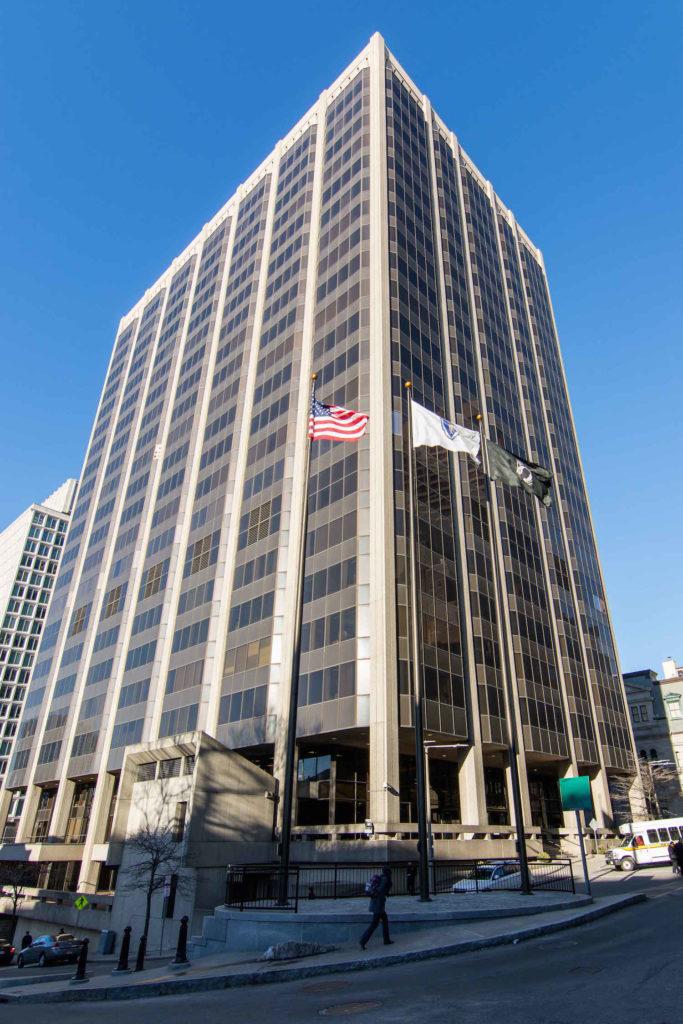By Marco White, news correspondent
State Sen. Jason M. Lewis (D-Winchester) and Rep. Peter Kocot (D-Northampton) have filed bills in the Senate and House respectively that would reform Massachusetts’ public records law. The Massachusetts Freedom of Information Alliance (MassFOIA), comprised of journalistic and open government organizations, has been calling for Massachusetts’ public record laws to be updated for years but have recently redoubled their efforts in hopes that these new bills will become law.
“The [Massachusetts] government’s view of public records is generally that they belong to us, the government, rather than they belong to you, the people, as the Constitution says and as the laws say in most cases,” Northeastern professor of journalism Lincoln McKie said.
McKie, like others in Northeastern’s School of Journalism, support the MassFOIA’s push to reform Massachusetts’ current public records laws.
“The legislation is not intended to extend the scope of the law or to change the exemptions,” Justin Silverman of the New England First Amendment Coalition, a member of the MassFOIA, said. “It’s mainly to provide some enforcement, to give some teeth to the law where there really aren’t any now.”
The law does not seek to change existing exemptions to public records, which restrict access to those records that would violate personal privacy or criminal investigations. According to a press release on the Massachusetts Newspaper Publishers Association’s website, the legislation proposes the state be responsible for legal fees accrued when public records requests are denied and legal action is taken, a records access officer assist in locating records and electronic records be more widely available.
“We have been trying to bring this law into the 21st century. It hasn’t been meaningfully updated since 1973, which is, of course, a long time ago, especially considering how technology has changed since then,” Christopher Ott of the American Civil Liberties Union, a member of the MassFOIA, said.
Ott thinks it is unfair for the government to charge fees for providing public information when documents can be easily sent over email.
“Government officials are well aware of the fact that a lot of news organizations don’t have the money and the resources that they had ten or twenty years ago,” Northeastern professor of journalism Dan Kennedy said. “So they delay and the reporters receiving these records often have to move on to other stories. So the delay sometimes becomes tantamount to killing the story.”
Kennedy penned a letter, cosigned by 17 members of Northeastern’s School of Journalism, which supports the MassFOIA’s efforts to reform the public records laws. In the letter, which was published by the Boston Herald and the Boston Globe, Kennedy stated that “Reform is long overdue.” He also made mention of a recent decision by Massachusetts Secretary of State William F. Galvin that gave police chiefs and state officials the power to withhold records related to criminal charges at their discretion, even if the alleged criminal is a police officer. In an article on this same decision, the Globe posted links to several documents in which its reporters were refused access to state records.One particular case involved five officers charged with drunk driving.
In the document in which the reporter was refused access, the cited statute read, “A record may be held as CORI [Criminal Offender Record Information] if it is a record compiled by the department concerning an identifiable individual and relates to the nature or disposition of a criminal charge, an arrest, a pre-trial proceeding, other judicial proceedings, sentencing, incarceration, rehabilitation or release.”
The week of March 15 – 21, known as Sunshine Week, was founded by the Florida Society of Newspaper editors in 2002 to inform citizens of their rights to access public records. In Massachusetts, publications like the Boston Globe and independent reporters have used Sunshine Week as a backdrop to the renewed push for easy access to public records, which many feel is one of the major issues afflicting the state government.
Massachusetts received an F in public access to information from the State Integrity Investigation, run by the Center for Public Integrity. The State Integrity Investigation also stated on its website that, in Massachusetts, “a culture of secrecy undermines public confidence in the government.”
Photo by Joe Thomas.














